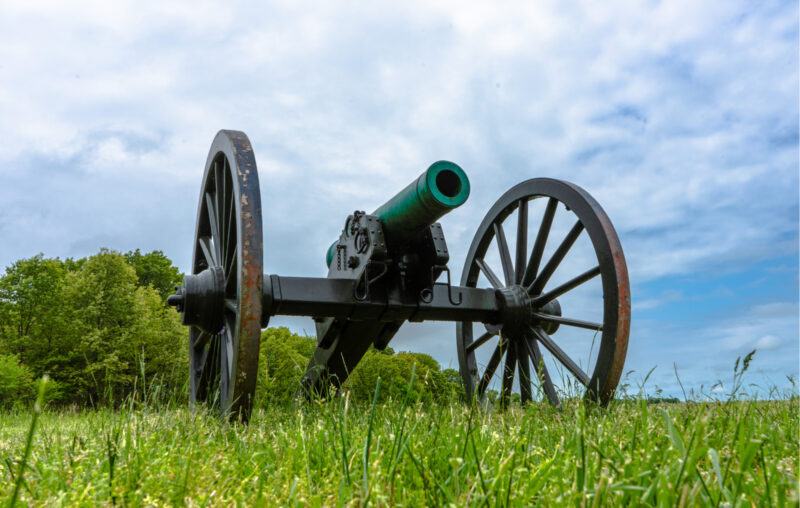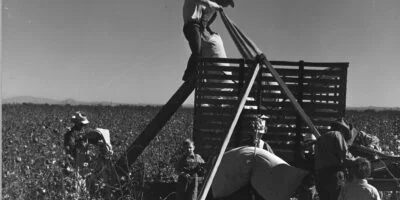Private Cannon Ownership in Early America

President Joseph R. Biden, Jr. claimed in a speech on Wednesday, 23 June 2021 that “The Second Amendment, from the day it was passed, limited the type of people who could own a gun and what type of weapon you could own. You couldn’t buy a cannon.”
Oh, Joe, all the things you don’t know! Your claims are factually inaccurate; Internet patriots should censor these particular ones as dismisinfoganda. Other fact checkers have already pilloried your ignorance of these matters! You, or at least your speechwriters, should read a book, literally my One Nation Under Debt (McGraw Hill 2008). In it, and the copious sources cited therein, you will find that private individuals could, and did:
- form their own military units, usually termed “Legions,” that included artillery units. That of Charles Dabney of Virginia is discussed in my book based on primary source research that I conducted at the Virginia Museum of History and Culture and military histories include plenty of other examples.
- organize and charter private militia units as nonprofit corporations. On 28 October 1801, for example, Thaddeus Rice, John Hastings, James Godfrey, Reuben Rice and others incorporated a private artillery company in St. Albans, Vermont (see pages 120-21 of that state’s annual statutes to verify). On 3 November of the following year, 40 individuals did likewise in Shrewsbury, Rutland County (pps. 44-46). Other examples abound.
- own cannon, individually and as part of mercantile partnerships, for use on their ships, for protection against pirates and for use as privateers, private ships licensed by the U.S. federal government to seize enemy ships for lawful sale, a power granted Congress in the Constitution (Article I, § 8, clause 11). During the War of 1812, more than 200 American privateers seized and sold over 1,000 British ships. The details can be found in Timothy S. Good’s book here.
- develop, manufacture, stockpile, and sell cannon to meet the demand of private individuals as well as the government. Consider an article in the Congressional Weekly Register on 7 January 1812 (pps. 342-43) complaining “that the least rumour of war” caused the market price of military goods like cannon to increase 50 to 100 percent. Nevertheless, the stock of “cannon and small arms” remained “adequate to emergencies” and the art of boring cannon was “so well understood” in this country that thousands more cannon could be quickly and flawlessly manufactured if necessary. Twenty years later, the nonprofit Franklin Institute in Philadelphia announced that it had developed a superior new portable cannon percussion lock (Journal of the Franklin Institute, 1 March 1833, p. 152), one of many such announcements it made over the decades.
- fire their own cannon for celebratory purposes. An interesting court decision from Erie County, Pennsylvania in 1833 stated that for almost three score years it had been a “universal practice throughout the whole land, to fire cannon” to celebrate Independence Day and other major events (Hazard’s Register of Pennsylvania, 19 October 1833, pps. 247-48; Niles’ Weekly Register, 26 April 1823, p. 114). Shoot ‘em if you got ‘em appears to have predated “smoke ‘em if you got ‘em.”
And although I hesitate to bring this to Joe’s attention, individuals and nonprofits own cannon today. In 2019, for example, Brown’s Company of Artillery fired for five hours in Lebanon … the one in Connecticut. And the Ancient and Honorable Artillery Company, a private artillery company organized in Massachusetts in 1638, still exists! Yes, they fire smoothbore muzzleloaders, which remain completely federally unregulated to this day. Breech loading cannon with rifled barrels are federally regulated, but not banned.
Even though according to WaPo candidate Biden spent plenty of time in his basement during the pandemic apparently doing nothing, it would be unreasonable to expect that President Biden would have as firm a grasp on American cannon ownership as an economic historian like myself does. But all Americans should expect that their president won’t spread dismisinfoganda. Wasn’t that one of the reasons why we weren’t supposed to vote for Trump?
In short, it is high time that Biden apologize for breaking his campaign promise not to lie to the American people. And somebody should take down Googzon, Twitbook, Instatok, etc. for allowing his lie to spread over the interwebs because apparently their biggest fear is that somebody with a lot less influence than the president might communicate a dubious idea on one of their platforms and thereby end them forever somehow. Imagine what allowing presidential lies to circulate could mean for those patriots!










